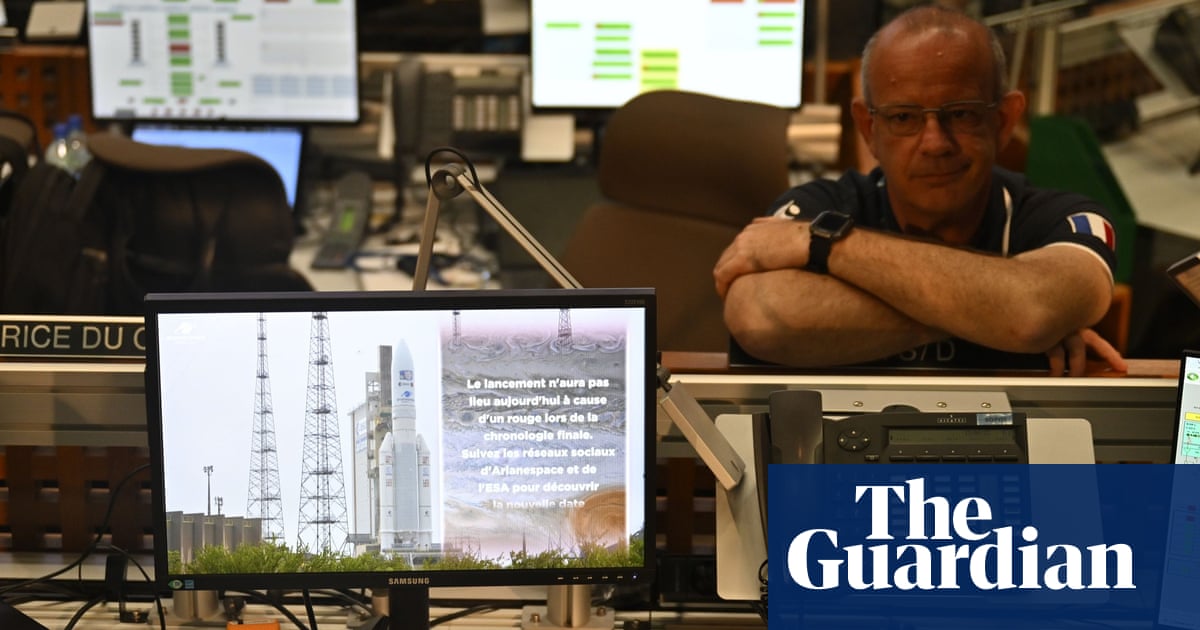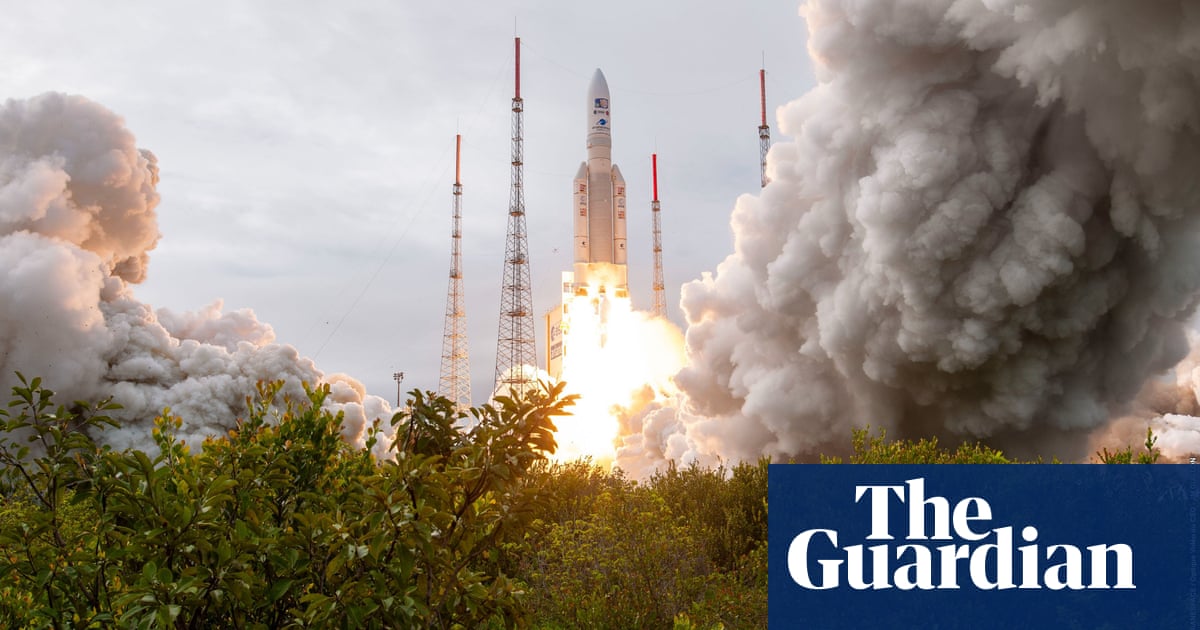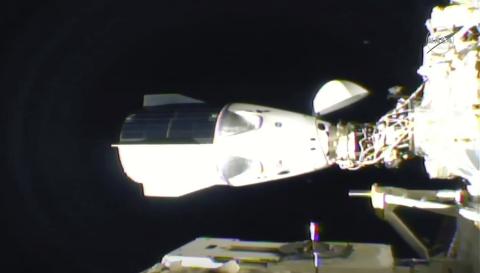
The European Space Agency has postponed its mission to Jupiter after weather forecasters flagged a risk of lightning strikes at its spaceport in French Guiana.
Mission controllers on Thursday scrapped the launch about 10 minutes before the Jupiter Icy Moons Explorer, or Juice, spacecraft was due to blast off on an eight-year voyage to survey a trio of Jovian moons where life may once have gained a foothold.
While Europa, Callisto and Ganymede are frigid, ice-covered moons three-quarters of a billion km from the sun, previous missions have found evidence for vast liquid water oceans beneath their surfaces, raising the tantalising prospect that living organisms might eke out an existence in the distant worlds.
Given the poor weather at the Guiana spaceport, the Juice mission was pushed back 24 hours, with Esa announcing it would next attempt a launch at 1.14pm UK time on Friday.
Responding to the delay, Josef Aschbacher, director general of the European Space Agency, said it was “not what we hoped for, but this is part of the game”. He added: “Hopefully tomorrow we have clearer skies.”
Barring major hiccups, the £1.4bn probe is expected to reach Jupiter in 2031, where it will use its suite of advanced instruments to study the atmosphere and magnetic environment of the largest planet in the solar system.
But Juice’s main focus is the three icy moons, which will be mapped during a succession of flybys. The mission will culminate with the probe swinging into orbit around Ganymede, Jupiter’s largest moon and the only moon in the solar system with its own magnetic field.
Of the three targets that Juice will visit, Europa is considered the only one capable of harbouring life. Though smaller than Earth’s moon, the vast ocean beneath its ice-covered surface may reach 150km deep, meaning it could hold more than twice as much water as all of Earth’s oceans combined. If even microbial life is found to exist elsewhere in the solar system, it would increase the odds of it being commonplace throughout the universe.
Juice is not itself equipped to detect life, but scientists will scan Jupiter’s moons for pockets of water and evidence that they have chemicals and energy sources that could sustain micro-organisms. The intense radiation field around Europa, owing to its close proximity to Jupiter, means Juice will perform only two flybys of that Jovian moon, followed by 21 of the more distant moon, Callisto.
At the end of its mission, Juice will swing into orbit around Ganymede, a body larger than the planet Mercury, making it the first spacecraft to orbit a moon other than our own.












